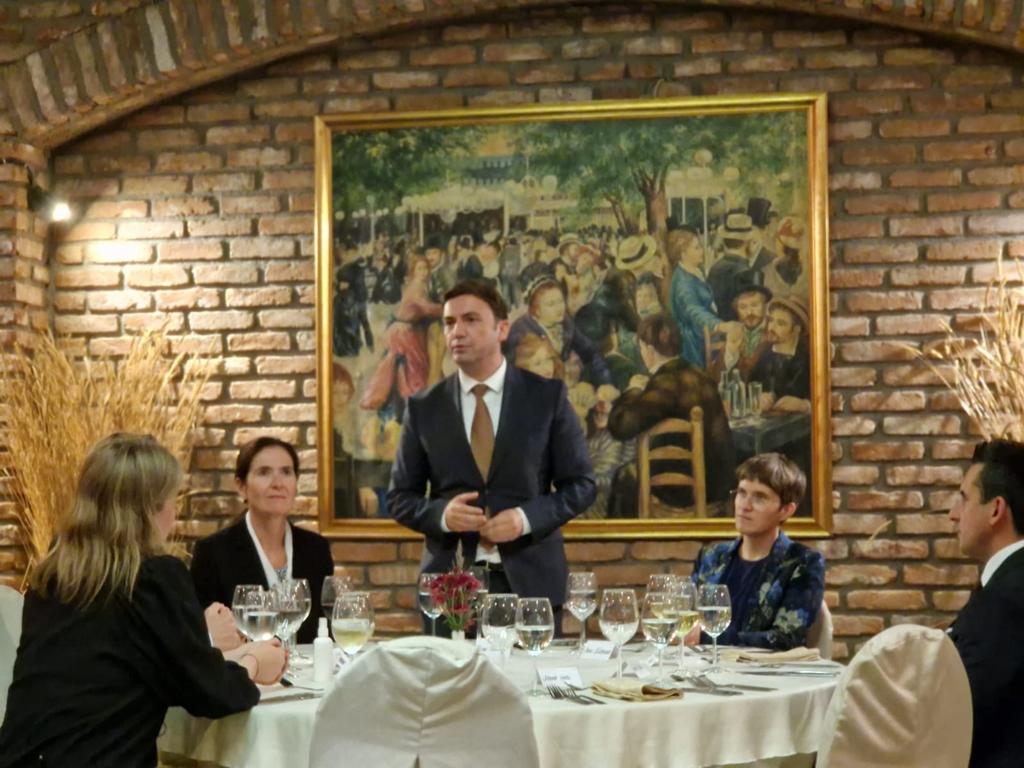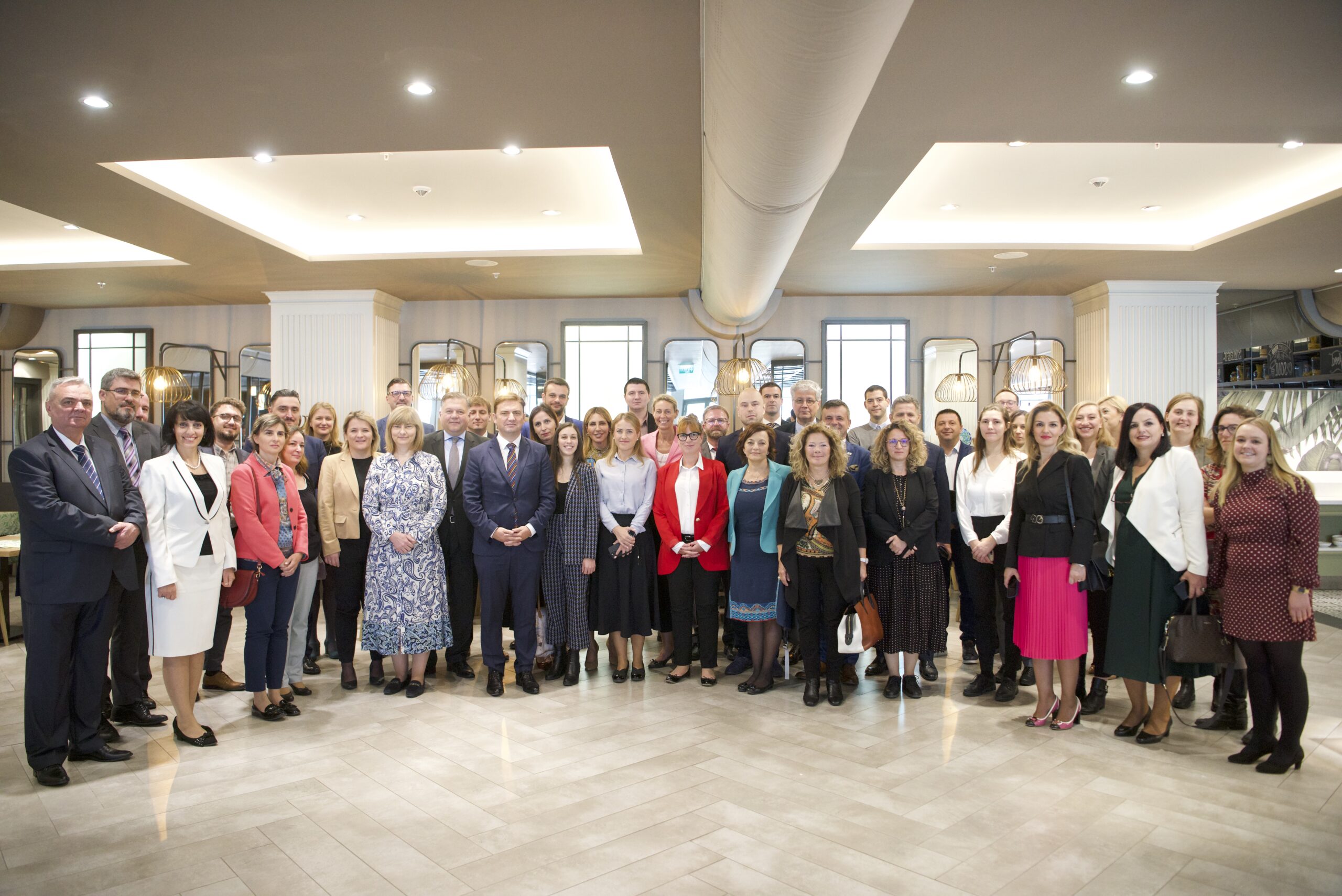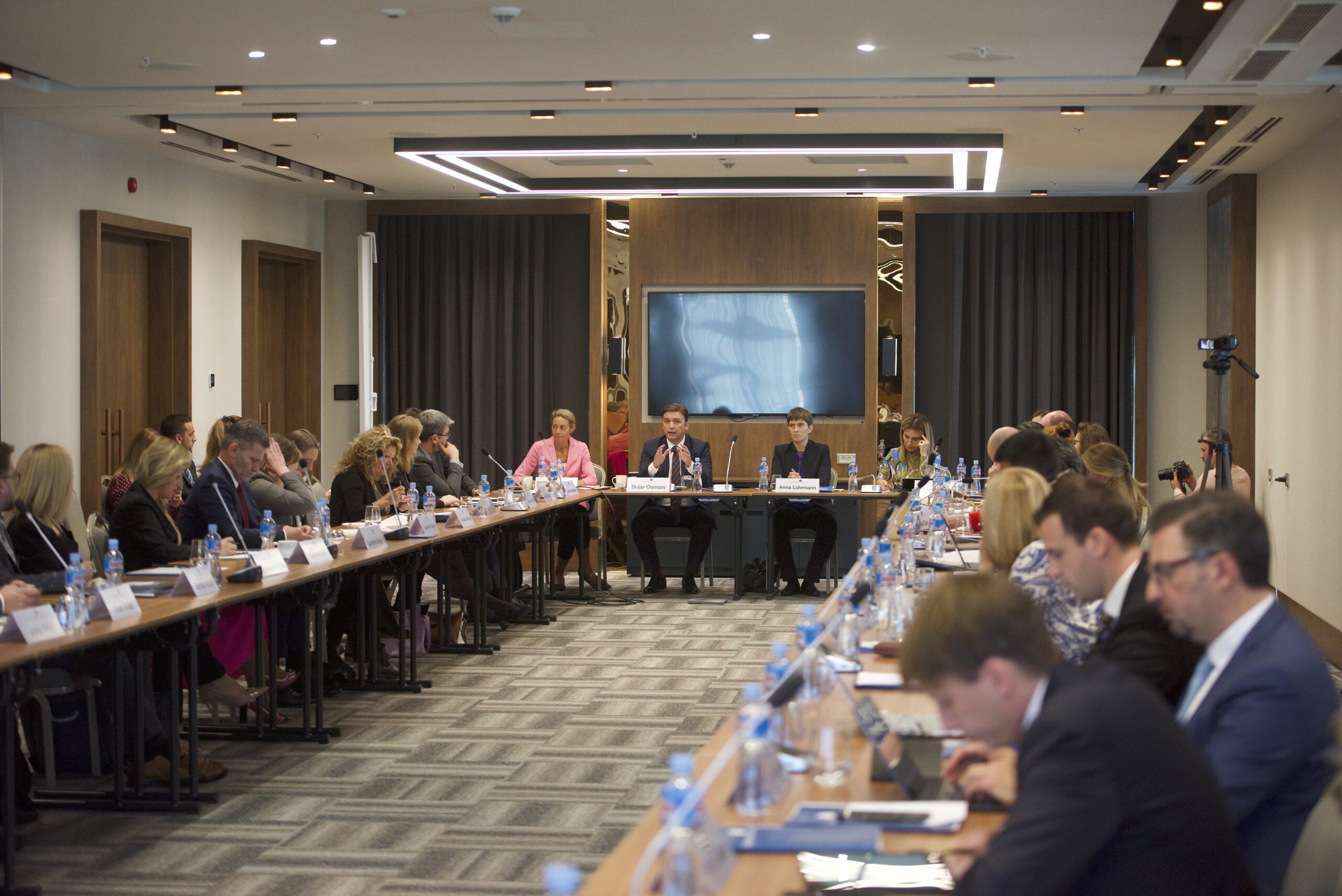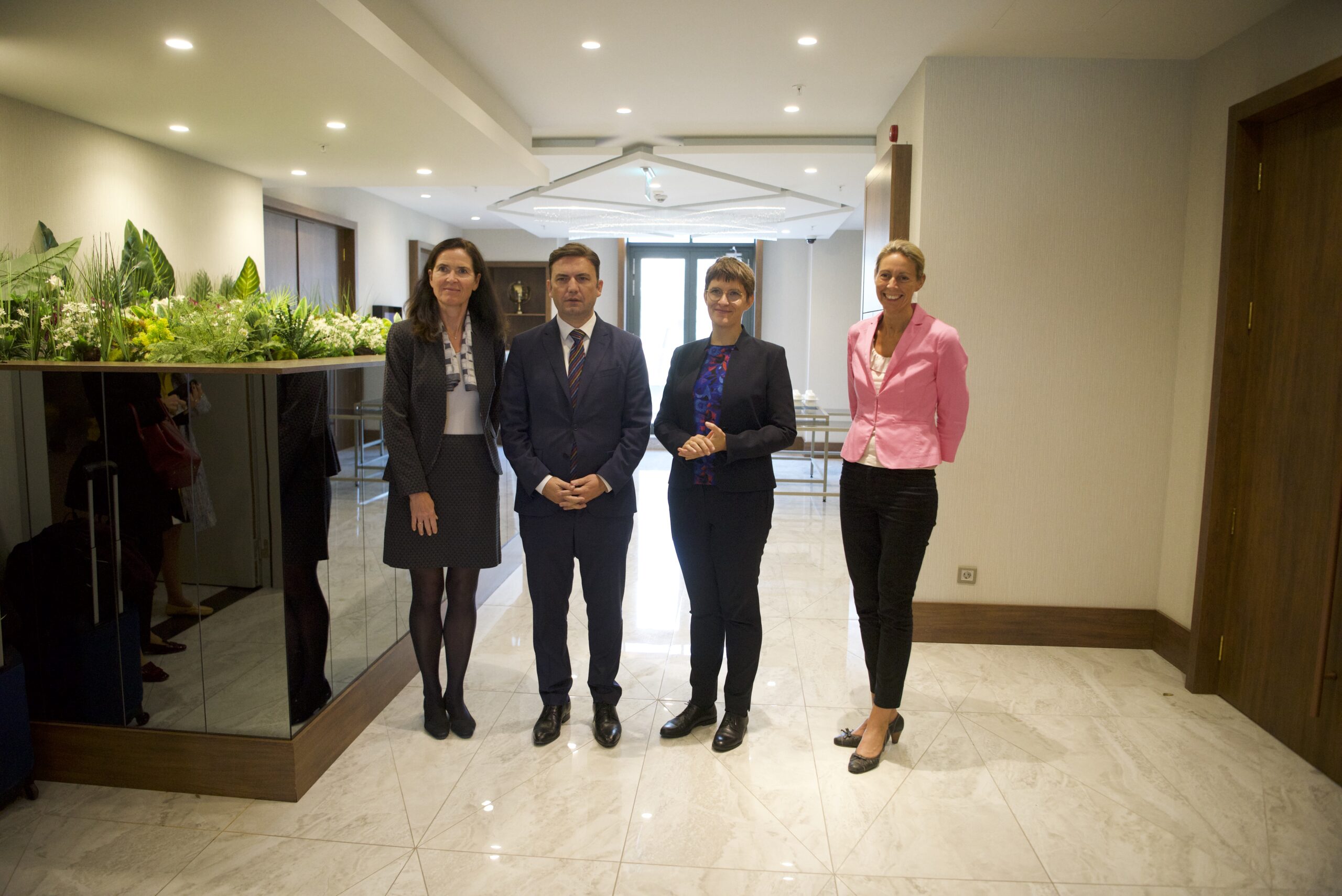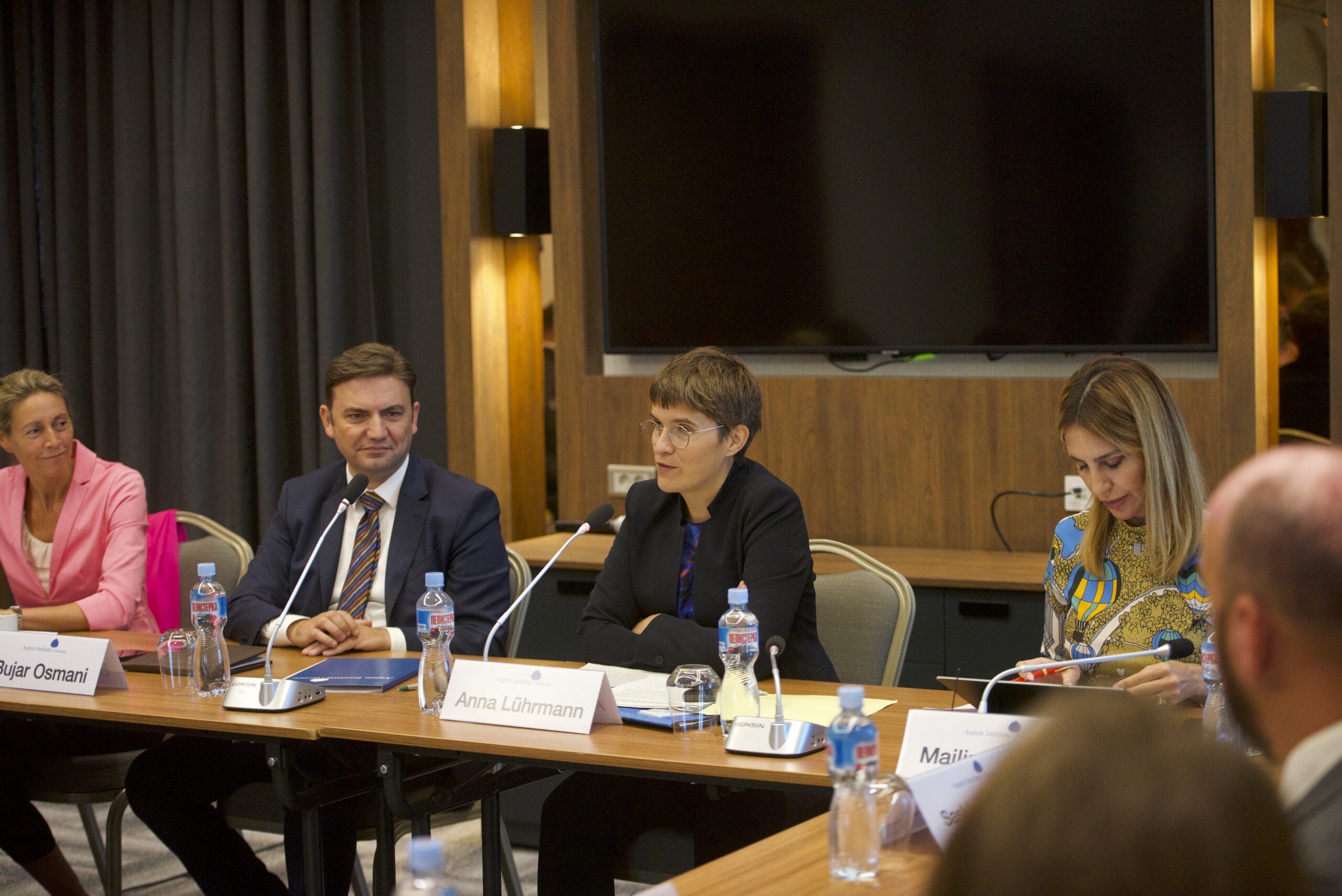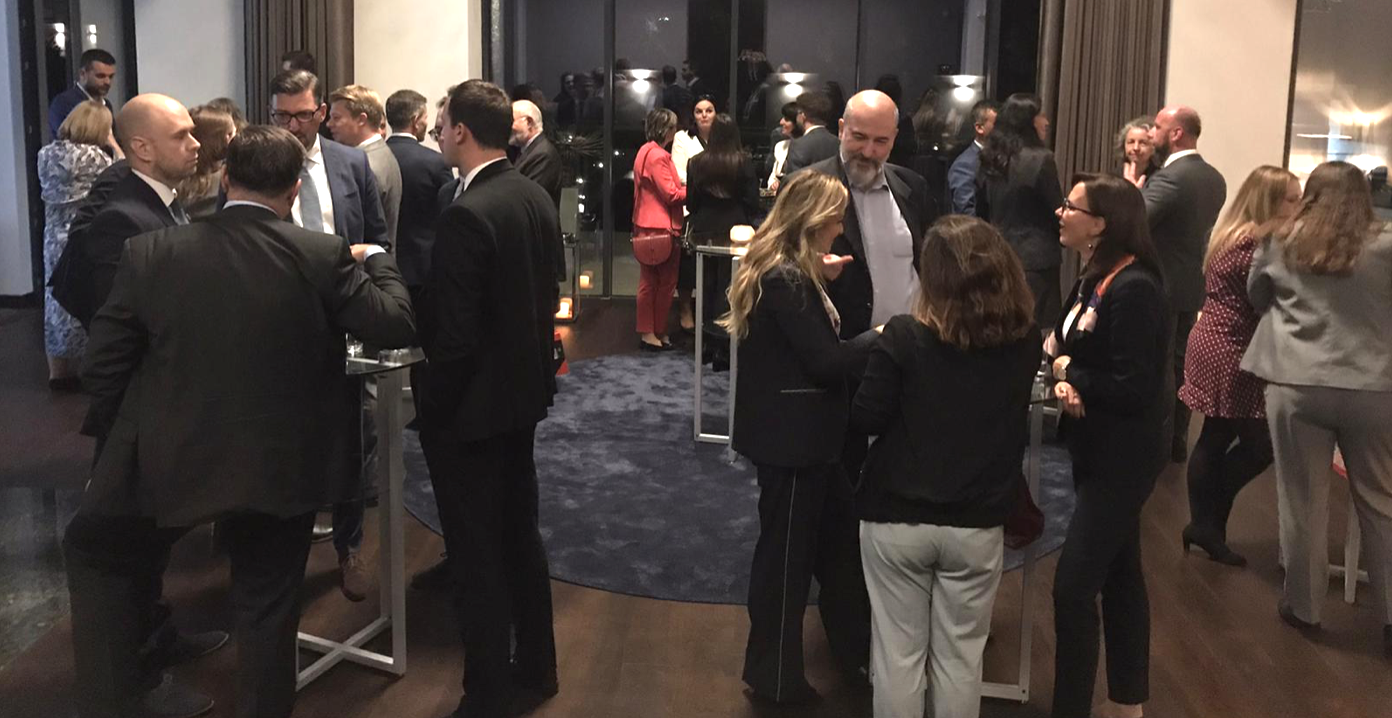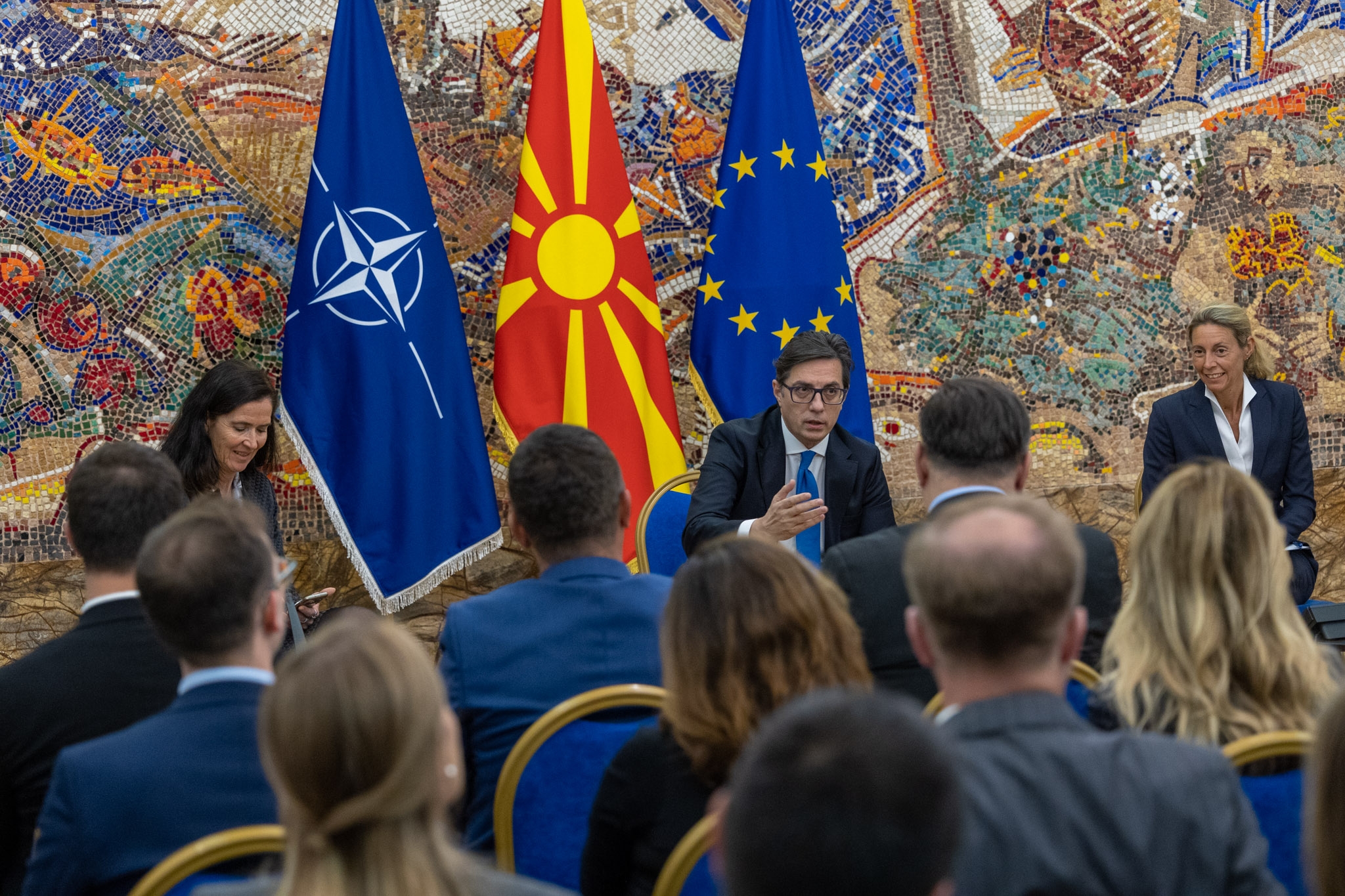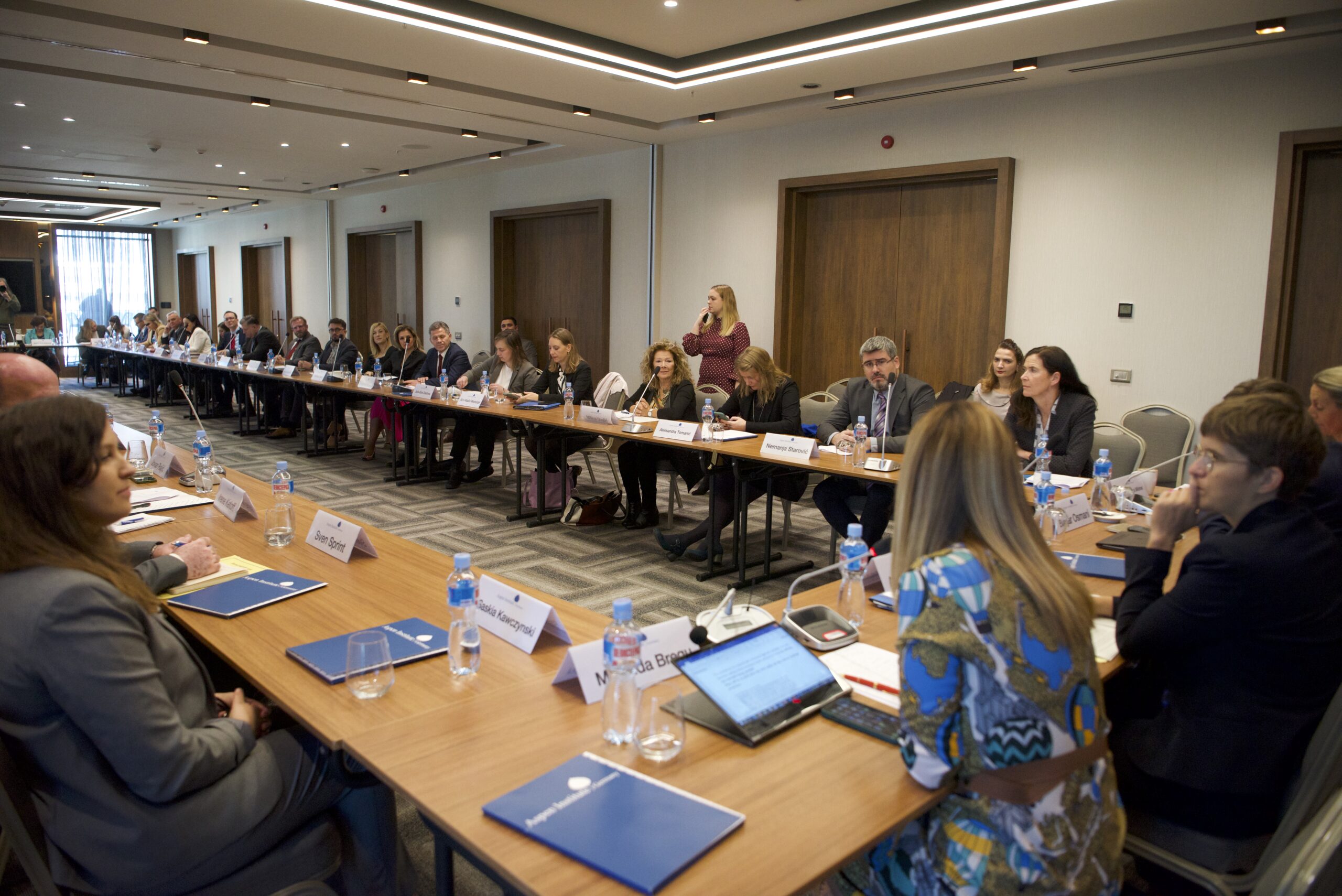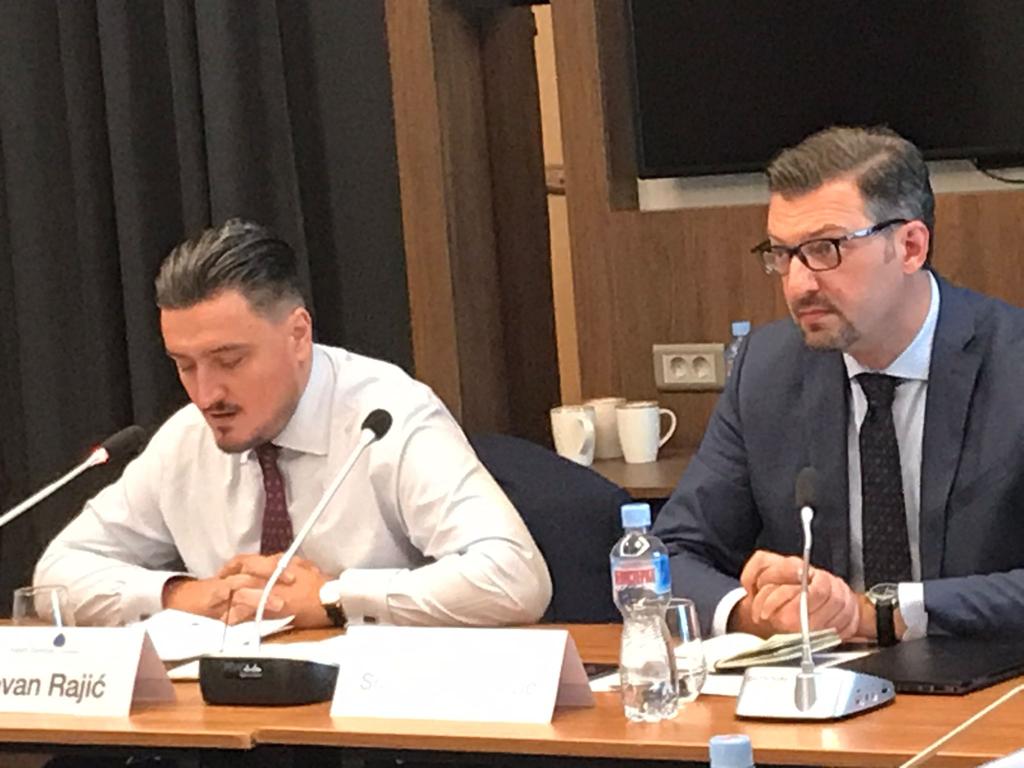
On October 4-7, 2022, Aspen Germany, in cooperation with the Ministry of Foreign Affairs of the Republic of North Macedonia, hosted a high-level conference on the topic “Green Agenda for the Western Balkans” in Skopje, North Macedonia. More than forty high-level participants from the Western Balkans, Germany, the EU as well as regional organizations came together in Skopje to discuss opportunities and challenges around promoting environmental sustainability in the Western Balkans. The gathering on this timely topic was made possible with generous support from the German Federal Foreign Office.
The EU’s Green Deal sets to achieve “no net emissions of greenhouse gases by 2050, as well as economic growth decoupled from resource use, no person and no place left behind”. The Green Agenda is a similar roadmap for the countries of the Western Balkans to adapt to these EU climate targets. All six countries of the region committed themselves to the Green Agenda at the Sofia Summit in November 2020. However, implementation is oftentimes lacking due to the (perceived) financial, economic, and social costs of the transformation processes, diverging interests of societal actors, information gaps among decision-makers, and vested interests. Yet, a green transition, especially in the field of energy, will be inevitable to tackle the climate crisis, its effects, and to ensure future economic development and competitiveness in the Western Balkans.
Thus, this conference addressed the following questions: How can the required economic convergence of the region with the EU, especially regarding the pandemic and its effects, be reconciled with greater climate and environmental protection? How can different societal groups be involved in the planning and implementation process and how can the importance of the Green Agenda be communicated to the public? What role can and should regional cooperation play? How can the necessary resources be generated to implement the Green Agenda? How can existing obstacles be jointly overcome to achieve implementation? Where should priorities be set?
The conference was opened by an discussion that featured Minister of Foreign Affairs Bujar Osmani of the Ministry of Foreign Affairs of the Republic of North Macedonia, Minister of State for Europe and Climate Anna Lührmann of the German Federal Foreign Office, and Majlinda Bregu, Secretary General of the Regional Cooperation Council. They spoke in depth about the importance of implementing the Green Agenda in the Western Balkans, focusing specifically on how to achieve a green transition and economic development in the region. The discussion was moderated by Aspen Germany’s Executive Director Dr. Stormy-Annika Mildner.
Bringing in stakeholders from different sectors, the conference featured four closed-door sessions led by representatives from civil society and academia that each highlighted one aspect of the Green Agenda in detail. In the first session, Prof. Milica Uvalic from the University of Perugia focused predominantly on the social dimension of the Green Agenda, introducing a discussion on how to achieve a just green transition and remove political barriers. Dr. Emine Daci Zejnullahi from the University of Business and Technology, UBT in Kosovo and Dr. Dragi Dimitrievski from the Faculty of Agricultural Sciences and Food-Skopje, University Ss. Cyril and Methodius in Skopje then highlighted the essential role of the agricultural sector in implementing the Green Agenda and improving food security in the Western Balkans, initiating an engaging exchange moderated by Dr. Valbona Zeneli from the George C. Marshall European Center for Security Studies.
On the second day, Jovan Rajić from the Renewables and Environmental Regulatory Institute (RERI) turned the spotlight toward energy transition and energy security. This discussion was moderated by and Srdjan Majstorović from the European Policy Centre. Finally, Adis Muhović from the Center for Policy and Governance led the last working session moderated by Anja Quiring from the German Eastern Business Association on moving the Western Balkans toward a circular economy.
In addition to these fruitful and lively closed-door discussions, the participants also got the chance to meet with decision-makers from the highest levels of government. President Stevo Pendarovski hosted the group for a discussion in his residence. The conference guests were also welcomed to a reception at the German Ambassador’s Residence by Ambassador Anke Holstein.
